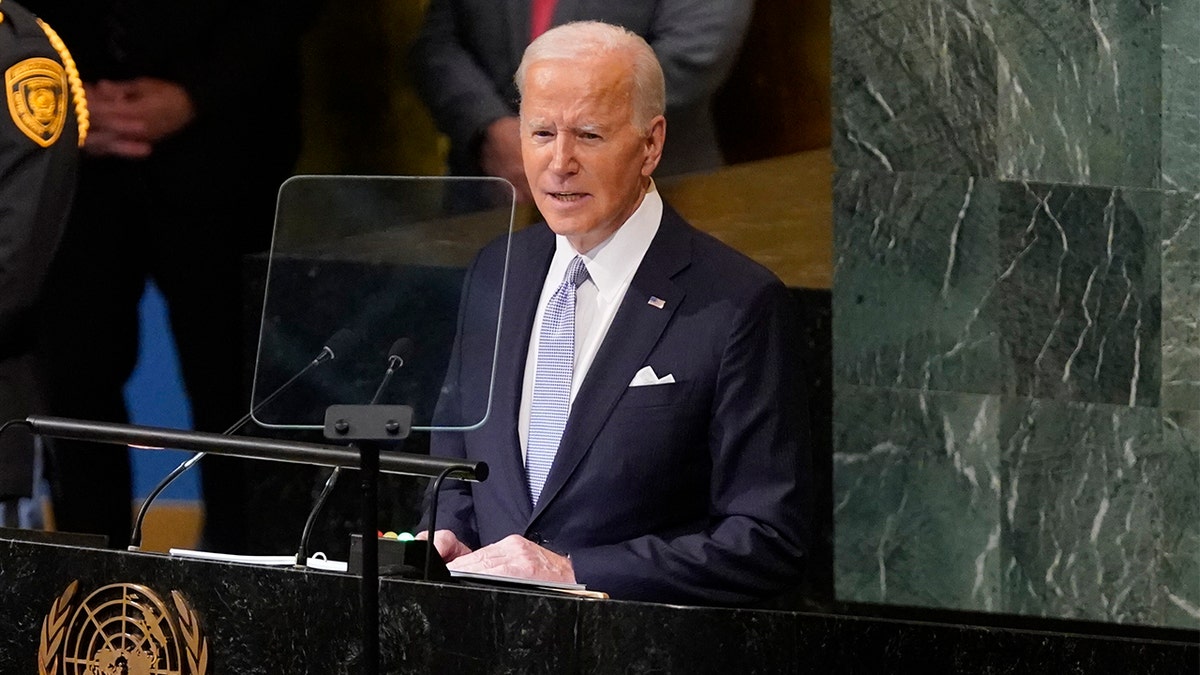Media Explodes Over Biden’s Latest Statement
Media Explodes Over Biden’s Latest Statement President Joe Biden recently dropped a political remark that shook the news cycle like an unexpected summer thunderstorm. Pundits, journalists, social media influencers, and political analysts scrambled to decipher, dissect, and deliver their takes. It was a media moment that seemed to unite the nation in curiosity—whether in agreement, outrage, or outright disbelief.
The statement, made during a high-profile economic summit, was not only bold but packed with implications. While Biden’s intent was to reaffirm his administration’s stance on democratic values and economic integrity, the phraseology he used set off fireworks. Overnight, media reacts to Biden statement became a trending search term, saturating timelines and sparking prime-time debates.

The Statement That Started It All
At the heart of the frenzy was a succinct but potent line: “If we allow extremism to fester in our halls of power, we risk the collapse of everything this nation stands for.” Though not naming names, the undertones were unmistakable. The message was clear: democracy is on the line, and the White House intends to defend it.
Cable News Cacophony
Cable news, never one to miss a beat, had wall-to-wall coverage. MSNBC lauded the president’s boldness. Anchor Rachel Maddow praised the moral clarity of Biden’s tone, saying it “resonated like a clarion call for unity.”
Over at Fox News, however, Tucker Carlson had a different take, interpreting the remark as an indirect assault on conservative lawmakers. “This is not just rhetoric,” he said. “This is an escalation.”
CNN provided a more balanced view, inviting guests from both political spectrums to weigh in. The channel emphasized context—placing Biden’s remarks within the broader narrative of his administration’s battle against political extremism.
It became increasingly evident that media reacts to Biden statement in wildly diverse ways, depending on their political lens.
Social Media’s Wildfire
Within minutes, Twitter/X was ablaze. Hashtags like #BidenBlast and #DefendDemocracy trended for hours. Influencers, political commentators, and everyday citizens alike weighed in.
Instagram reels emerged with dramatic background music and clipped footage of the moment, while TikTok creators mashed Biden’s words into dance challenges and parody skits. Facebook discussions grew heated, as users debated the implications of the statement.
The diversity of platforms ensured that the phrase would echo across generations and ideologies. One user quipped, “Biden’s mic drop might just be the political moment of the decade.” Others weren’t so amused. But regardless of sentiment, the virality was undeniable—media reacts to Biden statement with fervor.
Print Media Steps In
Traditional journalism didn’t stay on the sidelines. The New York Times ran a front-page editorial titled “Biden Draws a Line in the Sand”. Meanwhile, The Wall Street Journal questioned the timing of such a strong pronouncement amid fragile economic recovery.
Politico and The Atlantic offered long-form analysis, exploring the geopolitical and ideological ramifications of the speech. Their editorial boards speculated on the impact this would have on the 2024 elections, suggesting it might galvanize the president’s base while further alienating swing voters.
The Washington Post went for a more human approach, interviewing everyday citizens about how they felt watching the speech. One Ohio teacher remarked, “It’s about time someone stood up and said what needed to be said.”
Again, the pattern held: media reacts to Biden statement with a spectrum of opinion and layered interpretation.
International Echoes
Biden’s words didn’t just resonate domestically. International outlets picked up the story. The BBC reported on the global implications of a U.S. president denouncing extremism so explicitly. Al Jazeera examined the speech from a geopolitical perspective, linking it to America’s position in ongoing international power struggles.
French and German media discussed the rising populism within their own borders in light of Biden’s message. It became apparent that the world was watching—and reacting.
The Guardian wrote, “In a world increasingly torn by ideological divides, Biden’s speech was a gauntlet thrown at the feet of extremism everywhere.”
The Public Pulse
Beyond the headlines and hot takes, how did everyday people interpret the president’s declaration?
Polling data released two days later showed a 12% increase in approval among liberal-leaning independents. However, conservative approval dropped by 9%. More striking was the 20% of undecided voters who said the speech made them “pay more attention to politics.”
In coffee shops, workplace Slack threads, and dinner tables across America, conversations stirred. Media reacts to Biden statement but so too did the people. The remark, whether seen as prophetic or polarizing, struck a collective nerve.
The Echo in Academia
Universities and think tanks also chimed in. The Brookings Institution held a panel titled “Democracy and Discourse in a Polarized America,” focusing on the cultural weight of Biden’s phrasing. Meanwhile, Harvard’s Kennedy School issued a white paper on the rhetorical strategies employed.
Professors across the nation incorporated the speech into political science and communications classes, sparking essays and debates.
This wasn’t just a media story—it became a case study.
GOP Reaction and Retort
Republican leaders weren’t silent. House Speaker Mike Johnson called the speech “an attack wrapped in the guise of patriotism.” Senator Josh Hawley labeled it “executive gaslighting.”
In response, conservative media outlets aired a montage of previous Democratic missteps, aiming to show hypocrisy. But Biden’s allies struck back just as hard, highlighting the stakes of upcoming elections and the need for unwavering leadership.
The resulting echo chamber reverberated with fierce arguments from all angles. Media reacts to Biden statement but so too did the political machine.
Late-Night TV: The Lighter Side
And of course, the comedians got their slice. On The Late Show, Stephen Colbert delivered a monologue comparing Biden’s speech to a “dad finally snapping at a rowdy dinner party.” Meanwhile, Jimmy Kimmel ran a skit depicting Biden and Trump in a faux rap battle, using lines from their most controversial speeches.
Humor, satire, and late-night exaggeration played their role in humanizing the gravity of the moment.
Business Implications
Surprisingly, Wall Street didn’t shrug it off. Analysts noted short-term dips in politically-sensitive stocks, especially companies dependent on federal contracts. S&P 500 ticked slightly downward before rebounding.
Corporate leaders issued cautious memos. Some saw it as a distraction; others viewed it as a sign of coming regulatory reform.
As headlines screamed media reacts to Biden statement, investors asked: what does this mean for market stability?
Looking Forward: The 2024 Race
The shadow of the 2024 presidential election loomed large over this moment. Was this Biden signaling a campaign strategy? Many think so. Political strategists suggest the line was crafted to energize liberal voters and frame the election as a battle for the soul of the nation—again.
But there are risks. Too strong a stance might alienate centrists. Still, Biden’s campaign team reportedly celebrated the attention, confident that their message had reached across ideological divides.
Final Reflections
The aftermath of Biden’s remark paints a vivid picture of today’s media landscape. Fast-moving, highly reactive, and deeply polarized. But it also shows the enduring power of political speech in shaping national dialogue.
When the president speaks, the world listens. And when he chooses to challenge extremism head-on, reactions are as diverse as the American tapestry itself.
Media reacts to Biden statement with a symphony of narratives, emotions, and consequences. And in that moment, the country paused—just long enough to talk.
Stay tuned as we continue to unpack how political language shapes policy, perception, and the pulse of the nation.

